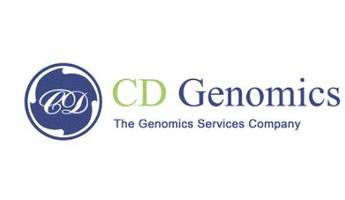New Microbial Transcriptomics for Predicting Resistance to Specific Antibiotics
Press Release Summary:

- Contains all RNAs encoded by a group of organisms in a complex sample
- Cellular RNA is extracted and converted to cDNA for sequencing library preparation
- Identification of high and low expression in a single bacterial, viral, or other microbial RNA-Seq experiment
Original Press Release:
CD Genomics MicrobioSeq Releases Microbial Transcriptomics for Disease Research and Drug Development
MicrobioSeq represents the microbial genomics division of CD Genomics, headquartered in New York, USA. CD Genomics is a genomics service company with a good reputation for providing reliable de novo sequencing, genotyping, microarray, and bioinformatics services. With years of experience in the pharmaceutical and life science sectors, CD Genomics has announced Microbial Transcriptomics solutions, which hold promise in uncovering novel ways to treat disease and improve human health.
The transcriptome is the complete set of RNAs encoded by an organism's genome. The metatranscriptome contains all RNAs encoded by a group of organisms in a complex sample. Microbial transcriptome and metatranscriptomic information is important for predicting resistance to specific antibiotics, understanding host-pathogen immune interactions, quantifying gene expression changes, and tracking disease progression. Next-generation RNA sequencing (RNA-Seq) of bacteria, viruses, and other microorganisms has become a standard method for analyzing transcriptomic and metatranscriptomic information.
Bacterial, viral, and other microbial RNA-Seq experiments enable annotation and quantification of comprehensive microbial transcripts. Cellular RNA is extracted and converted to cDNA for sequencing library preparation. The sequence reads are then mapped back to the reference genome, providing qualitative information on features such as exon junctions and splice sites, as well as quantitative transcriptional data that can be compared across many experimental sets.
Unlike hybridization-based methods such as microarrays, RNA-Seq enables unbiased strand-specific identification of common and novel transcripts. The wide dynamic range enables reliable identification of high and low expression in a single bacterial, viral, or other microbial RNA-Seq experiment. Multiple samples can be processed at once with a streamlined workflow suitable for automation.
“We provide prokaryotic RNA sequencing, eukaryotic RNA sequencing, viral RNA sequencing, microbial iso-seq, and metatranscriptomics for microbial transcriptomics and metatranscriptomics studies. Next-generation sequencing (NGS) and long-read sequencing have allowed us to better understand the functions of microorganisms through microbial expression profiling. NGS produces higher coverage and is more accurate than long-read sequencing methods. However, long-read sequencing technologies including PacBio SMRT sequencing and Oxford nanopore sequencing have become increasingly popular due to their capacities in determining full-length transcripts and in de novo assembly,” said the Chief Scientist of CD Genomics.
“Microbial transcriptomics promises to uncover new ways to treat disease and improve human health. For example, bacterial expression profiling has identified major changes in the expression of metabolic pathways relevant to disease pathogenesis in the human microbiome. Microbial transcriptomics is also important for predicting resistance to specific antibiotics, exploring host-pathogen immune interactions, and tracking disease progression,” he added.
For more information, please visit www.cd-genomics.com/microbioseq/.
About MicrobioSeq Divison of CD Genomics
MicrobioSeq is the microbial genomics division of CD Genomics, which is a genomics service company with a good reputation for providing reliable microbial sampling products, microbial testing services, microbial genomics services, and integrated bioinformatics services.




